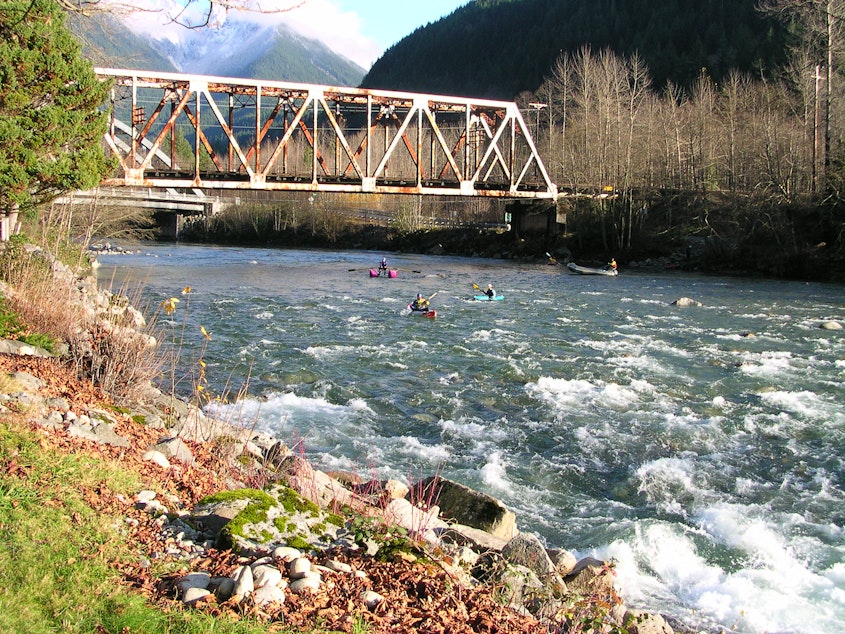Northwest tribe uses 'Treaty Rights 101' to school environmentalists

Libby Halpin Nelson started leading what she calls “Treaty Rights 101” workshops in January.
At the workshops, employees of environmental and outdoor recreation organizations spend a day learning about tribal history in the Pacific Northwest, what treaty rights are and how to work with tribes.
Nelson, with the Tulalip Treaty Rights Office, said she launched the workshops because more people than ever are visiting Washington’s public lands. That’s making it difficult for local tribes to fish, hunt, and gather — activities guaranteed to them by treaty.
“As the droves of people are coming from all over the world to the great Northwest, more and more we’re finding that some of those lands we can’t even hunt elk anymore because there’s so many human beings,” Tulalip tribal member Patti Gobin said.
Gobin said she wants her children and grandchildren to be able to maintain traditional Tulalip practices. For her the question is how to do that in Washington's booming population. Her answer is education.
One of the things the workshops address are the Tulalip’s “principles for supporting treaty rights and tribal lifeways,” including “acknowledg[ing] that the Coast Salish peoples ... maintain a strong spiritual relationship to these lands,” “actively support[ing] policies that protect and restore critical habitat necessary for sustainable populations of fish, wildlife and plant resources” and “engag[ing] tribes early in...projects or acquisitions that may affect tribal interests.”
Nelson said the new approach is working.
Sponsored
For example, the Tulalip have been at the table for planning recreation and development in the Skykomish watershed, along U.S. Route 2, thanks to organizations engaging early on with the Tulalip as they plan land management decisions.
“We’ve watched Snoqualmie get quite developed,” Nelson said, “and it’s not an area that tribal members really feel that they can exercise their treaty rights.”
“We’re hoping to have a little different story in the Skykomish,” she said.
The Tulalip Treaty Rights Office plans to continue the workshops through the fall.




